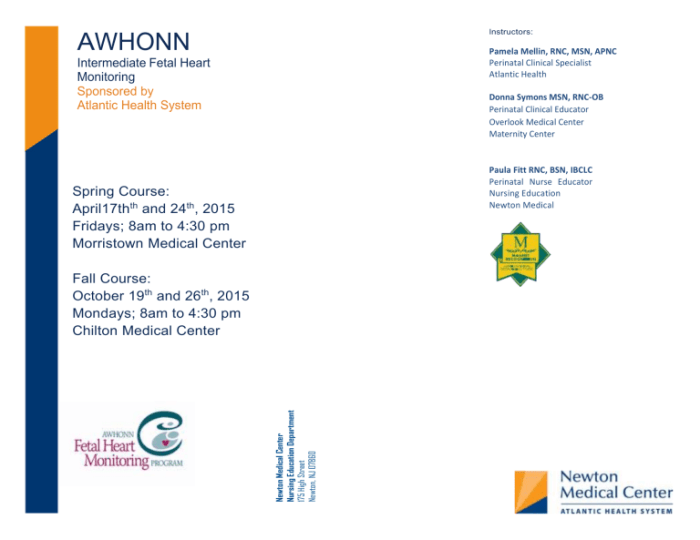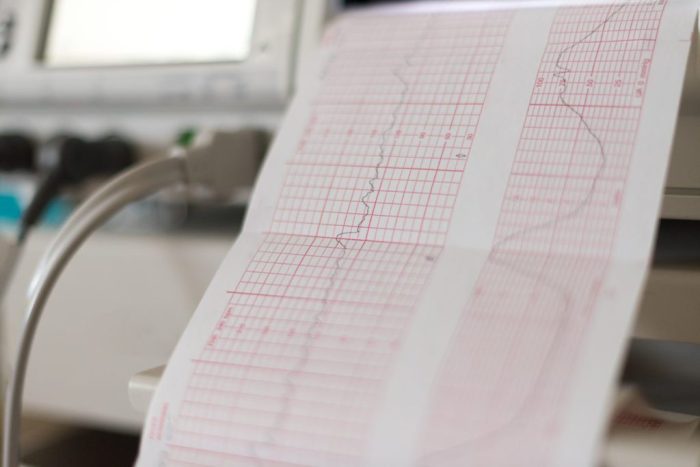The AWhonn intermediate fetal monitoring post test is a valuable tool for nurses and other healthcare providers who perform fetal monitoring. This post test assesses nurses’ knowledge of the principles and practice of fetal monitoring, helping to ensure that they are competent in this critical area of obstetrics.
In this comprehensive guide, we will provide an overview of the AWhonn intermediate fetal monitoring post test, including its components, scoring system, and interpretation. We will also discuss the applications of the post test in clinical settings, as well as the educational and training requirements for nurses who perform AWhonn intermediate fetal monitoring.
1. Introduction

Intermediate fetal monitoring (IFM) is a critical component of obstetric care, providing continuous surveillance of fetal well-being during labor and delivery. The Association of Women’s Health, Obstetric and Neonatal Nurses (AWhonn) plays a pivotal role in establishing guidelines and promoting best practices for IFM.
The AWhonn intermediate fetal monitoring post test is a standardized assessment tool designed to evaluate the knowledge and skills of nurses in performing IFM. This post test is essential for ensuring the competence and safety of nurses providing IFM care.
2. Components of the AWhonn Intermediate Fetal Monitoring Post Test

The AWhonn intermediate fetal monitoring post test comprises several key components:
- Multiple-choice questions:These questions assess the nurse’s knowledge of IFM principles, interpretation of fetal heart rate patterns, and management of fetal distress.
- Case studies:These scenarios present real-life IFM situations, requiring the nurse to analyze fetal heart rate tracings and make clinical decisions.
- Simulation exercises:These hands-on exercises allow the nurse to demonstrate their skills in performing IFM and responding to fetal distress.
Each component is designed to evaluate different aspects of the nurse’s competence in IFM.
3. Methods for Interpreting the AWhonn Intermediate Fetal Monitoring Post Test
The AWhonn intermediate fetal monitoring post test is scored using a standardized scoring system. The scoring system assesses the nurse’s ability to:
- Identify fetal heart rate patterns
- Interpret fetal heart rate patterns
- Make appropriate clinical decisions
Based on their score, nurses are categorized as:
- Competent:Nurses who demonstrate a high level of knowledge and skills in IFM.
- Needs improvement:Nurses who require additional training or support to enhance their IFM skills.
The post test results provide valuable feedback to nurses and help them identify areas for improvement.
4. Applications of the AWhonn Intermediate Fetal Monitoring Post Test
The AWhonn intermediate fetal monitoring post test is widely used in various clinical settings, including:
- Labor and delivery units:To assess the competence of nurses providing IFM care during labor and delivery.
- Antepartum units:To evaluate the knowledge and skills of nurses caring for pregnant women with high-risk pregnancies.
- Education programs:To assess the effectiveness of IFM training programs and identify areas for improvement.
The post test helps ensure that nurses are competent in performing IFM, which is essential for improving patient outcomes.
5. Education and Training for AWhonn Intermediate Fetal Monitoring
Nurses who perform AWhonn intermediate fetal monitoring must meet specific educational requirements:
- Initial training:Nurses must complete an approved AWhonn IFM training program.
- Continuing education:Nurses must participate in ongoing continuing education programs to maintain their competence in IFM.
Training programs cover topics such as:
- Fetal physiology and anatomy
- Fetal heart rate patterns
- Interpretation of fetal heart rate tracings
- Management of fetal distress
Continuing education programs provide updates on the latest advances in IFM and help nurses maintain their skills.
6. Quality Assurance for AWhonn Intermediate Fetal Monitoring
Quality assurance measures are essential to ensure the accuracy and reliability of AWhonn intermediate fetal monitoring:
- Standardized training programs:AWhonn provides standardized training programs to ensure that nurses receive consistent education.
- Regular audits:Audits are conducted to evaluate the quality of IFM care and identify areas for improvement.
- Peer review:Nurses regularly review each other’s IFM tracings to provide feedback and identify potential errors.
These measures help maintain the highest standards of IFM care and ensure the safety of mothers and babies.
7. Future Directions for AWhonn Intermediate Fetal Monitoring

The future of AWhonn intermediate fetal monitoring is promising, with advancements in technology and research:
- Artificial intelligence (AI):AI algorithms are being developed to assist nurses in interpreting fetal heart rate tracings and identifying fetal distress.
- Remote monitoring:Telemedicine technologies allow nurses to monitor fetal heart rate remotely, expanding access to IFM care in underserved areas.
- Personalized care:Research is focused on developing personalized IFM protocols based on individual patient characteristics.
These advancements will continue to improve the safety and effectiveness of AWhonn intermediate fetal monitoring.
FAQ Explained
What is the AWhonn intermediate fetal monitoring post test?
The AWhonn intermediate fetal monitoring post test is a standardized test that assesses nurses’ knowledge of the principles and practice of fetal monitoring.
Who should take the AWhonn intermediate fetal monitoring post test?
All nurses who perform fetal monitoring should take the AWhonn intermediate fetal monitoring post test.
What are the benefits of taking the AWhonn intermediate fetal monitoring post test?
Taking the AWhonn intermediate fetal monitoring post test can help nurses to:
- Assess their knowledge of fetal monitoring
- Identify areas where they need additional training or education
- Demonstrate their competence in fetal monitoring to employers and patients